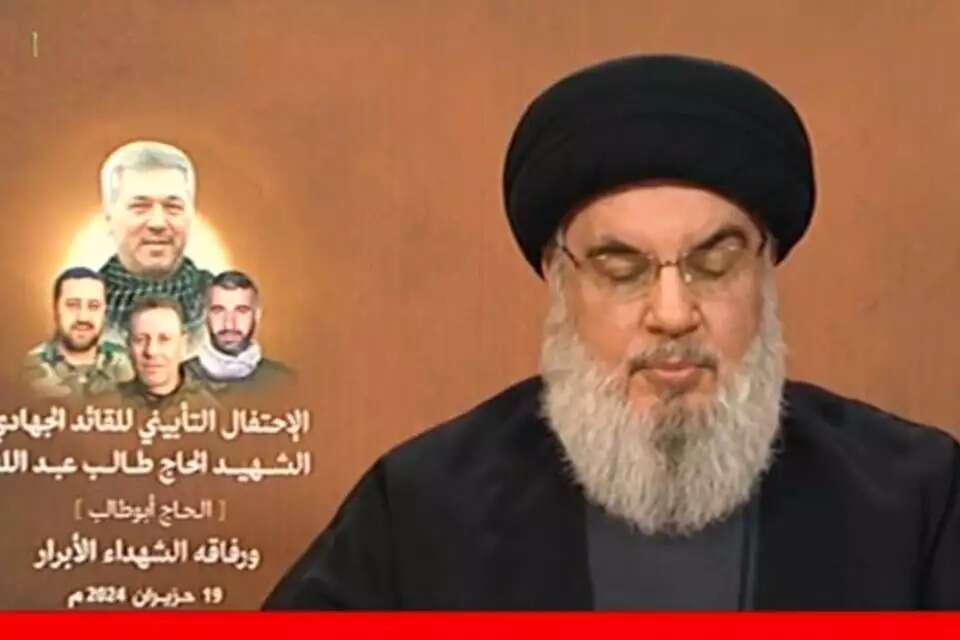Hezbollah Secretary-General Hassan Nasrallah threatened Wednesday to invade Israel's northern Galilee region if the current round of hostilities with Israel, which it initiated, escalates.
In a televised speech commemorating senior Hezbollah commander Taleb Sami Abdullah, who was killed in an airstrike last week, Nasrallah said, "An invasion of Galilee is something that remains on the table if the conflict escalates."
Nasrallah also issued a stern threat to Cyprus, vowing to strike the island nation if it allows IDF forces to use its airports to attack Lebanon. "We will attack Cyprus if it assists Israel," he declared.

Cyprus quickly rejected the threats, with President Nicos Anastasiades responding: "Cyprus is not participating in conflicts. It is part of the solution, not part of the problem."
The Hezbollah chief also boasted that his group had developed new weapons and capabilities to strike Israel, including in the Mediterranean region. "We have a bank of targets in the entity and the ability to reach them. What awaits Israel in the Mediterranean is very big."
Nasrallah's rhetoric was pushed back by Israeli military officials who said the Iran-backed terror group has taken significant losses in the ongoing conflict. In an interview with the Saudi Arabian network Al-Arabiya, IDF Spokesperson Rear Adm. Daniel Hagari said that 430 Hezbollah terrorists have been eliminated since the war began – over 80 more than the official toll of around 350 claimed by the terror group itself.
"We are specifically attacking Hezbollah and know where its members are located," Hagri stated, adding that Israel is prepared to handle any scenario. He also accused Nasrallah of misleading the Lebanese people, saying, "Nasrallah is taking Lebanon down a dangerous path and preventing the Lebanese people from knowing the truth."
Meanwhile, IDF Chief of Staff Lt. Gen. Herzi Halevi visited air defense batteries in northern Israel, praising the troops for providing security to civilians even as he warned Hezbollah that Israel possesses formidable military capabilities the enemy cannot comprehend.
"This defense provides a lot of security for civilians and the IDF, but we are not satisfied with that...I think the enemy only knows a small part of the capabilities we hold, and will encounter them when needed at the right time," Halevi cautioned.
The current round of conflict began following the Oct. 7 onslaught after Hezbollah launched missiles into Israeli territory in an unprovoked attack. Tensions have since risen to their highest point since the 2006 Lebanon War.
Ariel Kahana contributed to this report.




